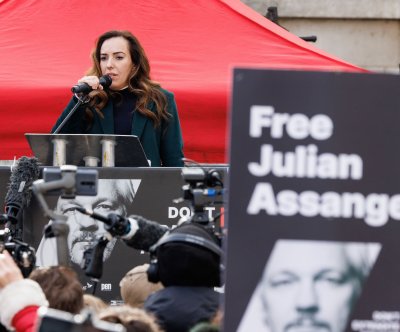WikiLeaks founder Julian Assange is facing another pivotal moment in his battle against extradition to the United States, as a two-day trial commenced on Tuesday in London’s High Court.
Despite the significance of the proceedings, Assange was notably absent from the courtroom. His legal team informed the court that he was unable to attend via video link from Belmarsh prison due to ill health.
Outside the courthouse, a crowd of supporters gathered, advocating for Assange’s release from British custody and opposing his extradition to the United States. Among them was Stella Assange, Julian’s wife, who encouraged demonstrators to persist in their efforts until Assange was liberated.

Julian Assange (Credits: The Guardian)
Addressing the assembled supporters, Stella Assange emphasized the global significance of her husband’s case, urging continued solidarity in the pursuit of truth and justice. She hinted at the possibility of appealing to the European Court for Human Rights should the current legal challenge prove unsuccessful.
The call for Assange’s freedom resonated beyond the immediate crowd, with voices from the International Federation of Journalists also joining the chorus. Tim Dawson, the federation’s deputy general secretary, stressed the broader implications for journalism and free speech inherent in Assange’s plight.
At the heart of the legal battle are the charges brought against Assange by U.S. prosecutors, including 17 counts of espionage and a charge of computer misuse. These charges stem from Assange’s role in publishing classified military documents in collaboration with Chelsea Manning in 2010.
Manning, who served in the U.S. military at the time of the leak, faced a seven-year prison sentence for her involvement. Meanwhile, Assange sought refuge in the Ecuadorian embassy in London from 2012 to 2019, where he was granted political asylum. However, his arrest followed his departure from the embassy, leading to his current legal predicament.
Recent developments have seen political figures in Australia, Assange’s home country, voicing support for his cause. Both the Australian prime minister and members of Parliament have backed a resolution calling for Assange’s return, citing concerns over press freedom and the potential consequences of extradition to the United States.























